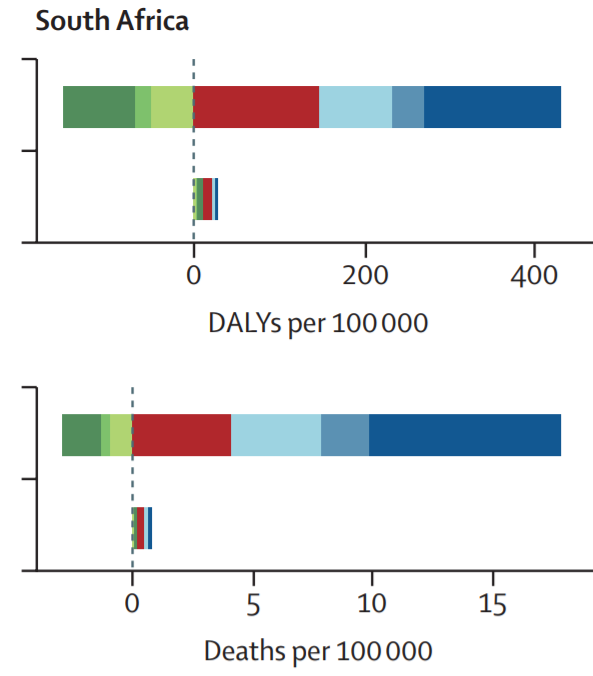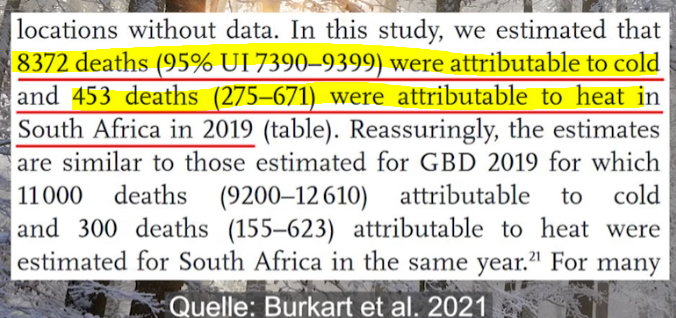More warming would save lives
A new, comprehensive Lancet study shows that far more people are being killed globally by cold weather than by hot weather.
Die kalte Sonne here looks at the impacts of temperature extremes on mortality. There’s no doubt that extreme weather kills more people. But the question in these times of “global warming” is whether or not warming is going to lead to more deaths.
A new publication in the renowned journal Lancet, by Burkart et al studied 65 million deaths in 9 countries occurring between Jan 1, 1980, and Dec 31, 2016 in relation to temperature effects.
The researchers found that 17 of the 176 categories for the cause of death “showed J-shaped relationships with daily temperature, whereas the risk of external causes (eg, homicide, suicide, drowning, and related to disasters, mechanical, transport, and other unintentional injuries) increased monotonically with temperature.”
The 17 causes of death with J-shaped curves (dependent of temperature) included heart disease, diabetes, chronic kidney disease, lower respiratory infection, and chronic obstructive pulmonary disease. Using the data, the team of authors extrapolated the results to the entire global population and examined the year 2019.
Almost 20 times more deaths were attributed to cold than to heat in South Africa. Image: Burkart et al 2021, Lancet.
The authors estimate in 2019, “the average cold-attributable mortality exceeded heat-attributable mortality in all countries for which data were available.” Cold effects were most pronounced in China and in New Zealand.
In China a population attributable fraction (PAF) from cold effects was 4·3% (3·9–4·7) and the attributable rates were 32.0 deaths (27.2–36.8) per 100,000. But when looking at the heat effects in China, the PAF was only 0·4% and the attributable rates were 3·25 deaths per 100 000. In other words, cold death rates were about 10 times higher than heat deaths.
In South Africa, the authors attributed almost 20 times more deaths to cold than to heat (8372 vs 453)!
Image cropped from Die kalte Sonne.
Cold definitely kills more than heat does by a long shot, and so warming would save lives. The study was sponsored by the Bill and Melinda Gates Foundation.
Are these findings being blared out by the mainstream media? No, of course not. And why not? It’s because they don’t want people to know what’s really going on.







It gets cold in Brazil?
LOL.
I wonder how much it might have to do with people in tropical and sub tropical climates not seeing a need to invest in cold weather gear? I remember reading about a freak cold spell in Asia claiming many lives because of that and few if any had indoor heating.
Of course, if you live on a Brazilian mountain, distant from the equator….
https://www.worldatlas.com/articles/does-it-snow-in-brazil.html
Old but interesting:
https://www.stuff.co.nz/national/health/461848/NZ-catches-death-of-cold-study
researchers pinning part of the blame on cold, damp and poorly maintained homes
The bulk of the deaths were people with circulatory, respiratory illnesses and infectious diseases. Infants and elderly people …
If this is still the case, NZ — shape up!
Nowhere near as dangerous as politicians ignorant of medicine mandating medical treatments.
https://www.thegatewaypundit.com/2021/12/germany-imposes-nationwide-lockdown-unvaxxed/
Has the world learned nothing?
https://childrenshealthdefense.eu/eu-issues/vera-sharav-a-holocaust-survivor-talks-about-the-corona-measures-and-how-they-attack-our-humanity-in-an-interview-with-our-german-correspondent-uwe-alschner-part-1/
On the same point see Emmanuel Le Roy Ladurie, “Times of Feast, Times of Famine: A History of Climate Since the Year 1000”, translated by Barbara Bray (London: Allen & Unwin, 1972).
Thx
https://formrage.com/ebook/times-of-feast-times-of-famine
[…] Read more at No Tricks Zone […]
[…] Related: Research Shows Cold Far More Deadly Than Heat, 10 Times More In Brazil, 20 Times More In South Afric… […]